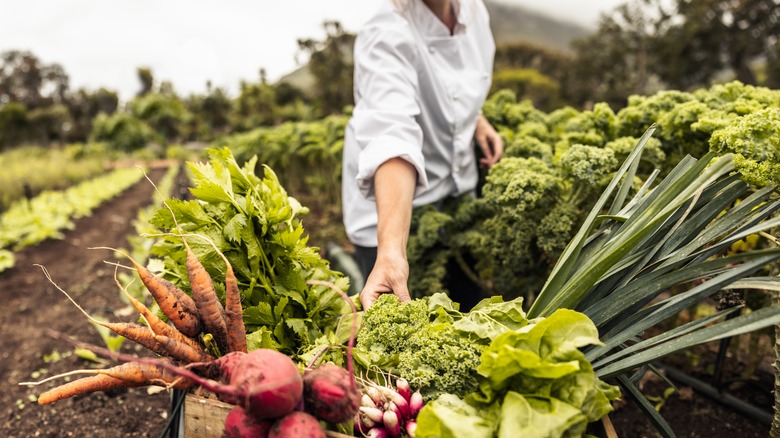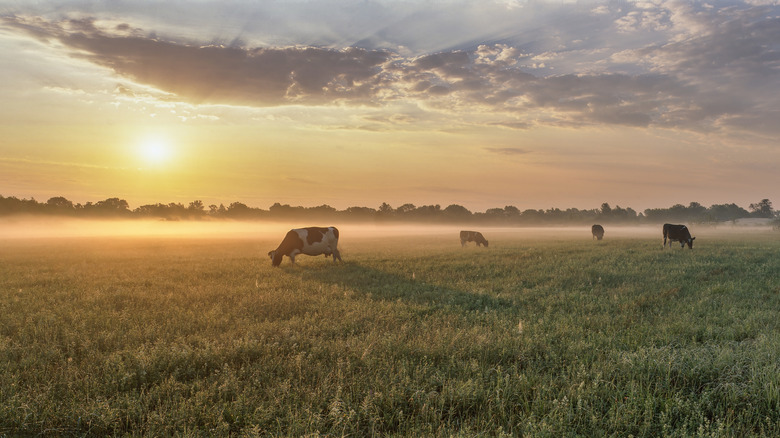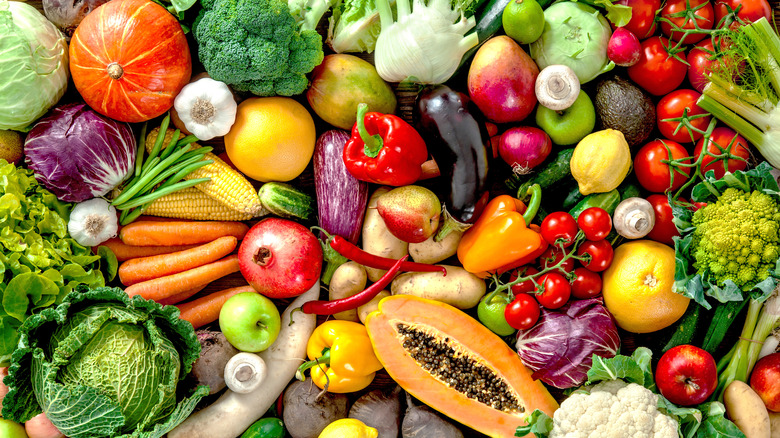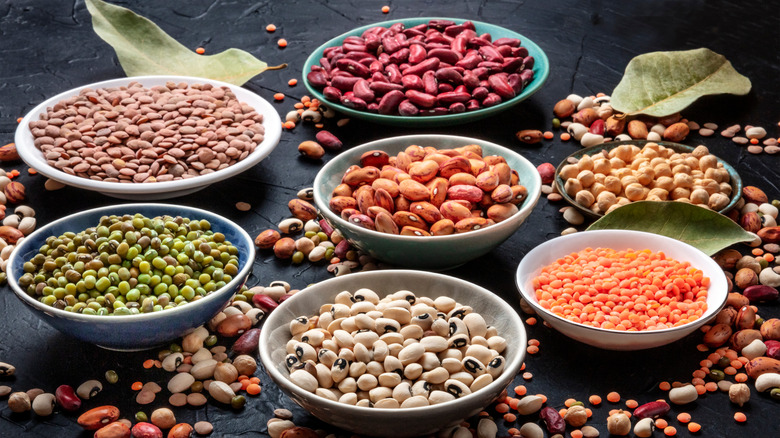Is The Climatarian Diet The Next Big Wellness Trend?
What we eat is connected to more than just our taste buds. It also ties in with our personal history, culture, emotions, and values. So, it comes as no surprise that more and more people are consciously building their diets around their beliefs about climate issues — a movement known as the climatarian diet (via Climatarian.com). The term was first introduced in an article for The New York Times in 2015 and has risen in popularity ever since.
Climatarianism encourages the consumption of climate-friendly foods, such as locally-grown produce, and limits the intake of carbon-intensive foods like meat and dairy (via EcoWatch). Eating this way isn't just beneficial for the environment, say proponents of the diet — it makes sense for your health too.
Food systems account for more than a third of the world's greenhouse gas emissions (via UN News). And research published in the journal Nature shows that even small dietary practices can help make a massive difference to the health of our planet. They found that "substituting only 10% of daily caloric intake from beef and processed meat for fruits, vegetables, nuts, legumes and selected seafood could offer... a 33% reduction in dietary carbon footprint."
What exactly is the climatarian diet?
The idea behind the climatarian diet is that what we eat should have a minimal impact on the environment, states Climatarian.com. Adherents of the diet choose foods that have a low carbon footprint, such as locally-grown foods, plant-based foods, and seasonal fruit and vegetables. They avoid foods that take up significant natural resources, contribute to pollution and waste, and use excessive or non-biodegradable packaging.
While many climatarians may be vegan or vegetarian, some choose to eat animal products so long as they're sustainably produced (per EcoWatch). For instance, one might choose locally sourced meat over out-of-season produce that's been trucked, air-freighted, and shipped long distances to reach consumers, as well as being packaged in plastic that's harmful to the environment.
Some proponents of the diet will point to data suggesting plant-based proteins have lower carbon footprints than even the most sustainably produced meats, per Our World in Data. However, it's best to find what works for you, and it's fair to say it's not a one-size-fits-all diet. In fact, not all meat is off the menu, according to Climatarian.com.
Is it better for our overall health?
Interestingly, foods with a low environmental impact also happen to be better for our health. Think fruit, vegetables, legumes, and whole grains. Based on the findings of a 2019 study published in Proceedings of the National Academy of Sciences of the United States of America, people who consume more of these foods have a lower risk of death and chronic diseases, such as heart disease, diabetes, and certain types of cancer.
Pollution and environmental degradation have both direct and indirect health consequences as well, notes the Centers for Disease Control and Prevention (CDC). Soaring temperatures have a negative effect on food quality and safety and elevate the risk of a heat-related stroke.
Additionally, pesticides and artificial fertilizers aren't just contaminating and endangering our ecosystems — they might be contributing to various illnesses too. A 2016 review published in Frontiers in Public Health highlighted a strong link between exposure to chemical pesticides and health issues like cardiovascular diseases, reproductive problems, and neurological problems.
Go-to foods and those to avoid
The climatarian diet naturally promotes whole foods that are rich in nutrients (via EcoWatch). It leans away from processed foods, which are generally high in sugar, sodium, and fat.
Pulses like beans, lentils, and chickpeas are a popular choice since they don't require as much land and water to grow as other protein sources, notes the Harvard T.H. Chan School of Public Health. Pulses produce their own nitrogen from the atmosphere, enriching the soil with nutrients and reducing the need for synthetic fertilizers. Consuming a small amount daily can improve blood pressure and reduce inflammation (via Critical Reviews in Food Science and Nutrition).
Mushrooms are also pretty sustainable to farm, per the American Mushroom Institute. And they're packed full of nutrients like riboflavin (B2) and potassium (via Food & Nutrition Research).
If you're keen to switch to a more sustainable diet, there are numerous apps that can help you navigate the way. The free app Kuri has more than 650 climatarian-friendly recipes, while Olio connects users with their neighbors and local shops and cafes in order to share surplus food. The Food Miles Calculator is a global online tool that helps you calculate the travel miles of your food. More information and resources can be found on Climatarian.com.




